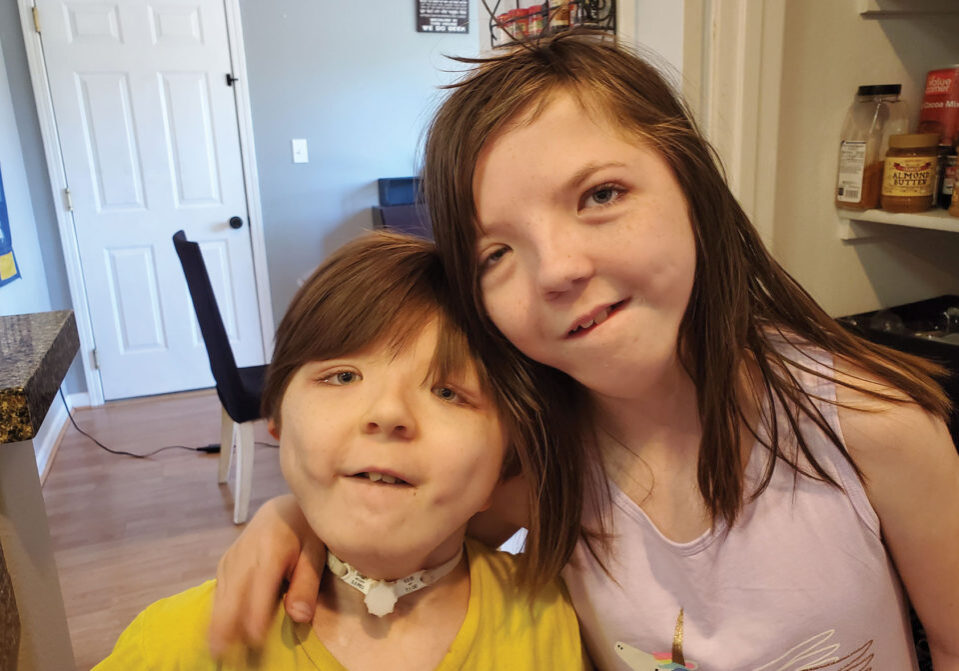When raising a child with special needs, advocacy becomes second nature. It starts with speaking up for your child’s needs at home and then expands to schools, doctor’s offices and community organizations. As a parent, you become their voice, making sure they get the support and accommodations they need to thrive. A supportive school environment is also key to help them succeed. Andrew Escobar-Hawes, a 19-year-old college student with autism is a great example of how powerful parental advocacy and a caring school can be.
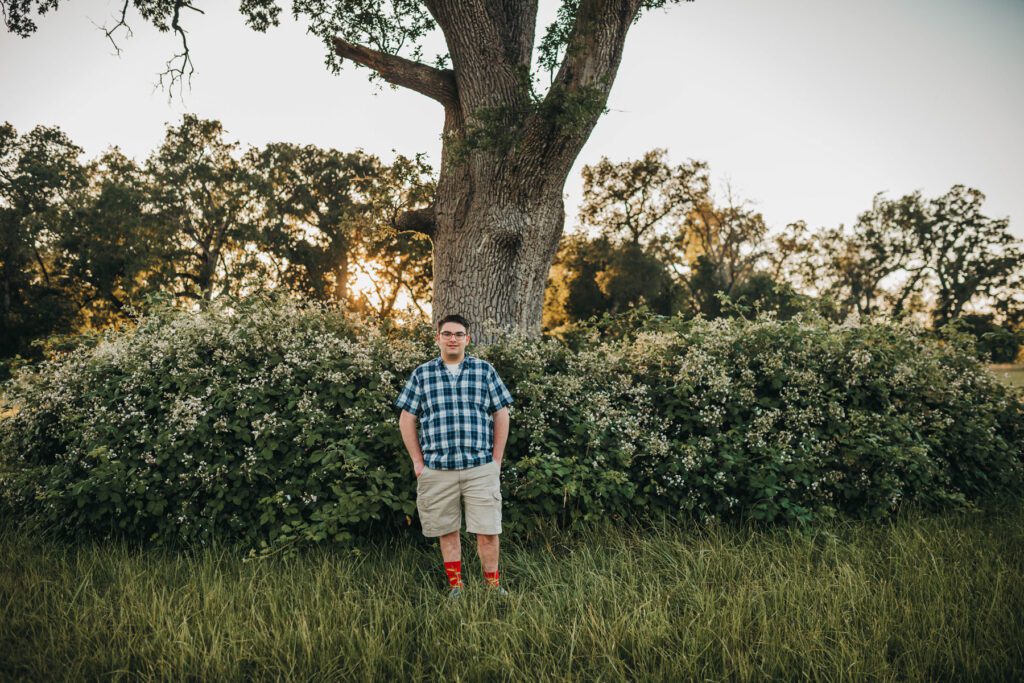
Gaining life skills by working on the farm
When Andrew’s not in class at Shasta College, you’ll find him tackling all kinds of jobs around his family’s farm. Hawes Farm in Anderson has become a well-loved destination in the North State, especially for its seasonal events and activities. There’s always plenty to do on the farm. Besides hosting seasonal events, Hawes Farm runs a Farm Ranch and Supply Store and grows hay, fruits, vegetables and walnuts.
“He’s always doing something out here,” his mom Nikola Hawes shares. Whether it’s planting seeds for the Sunflower Festival or moving pipes for the walnut orchard irrigation, Andrew is always ready to lend a hand. He also played a big role in assembling last year’s Lights on the Farm display. Andrew says his favorite part of working on the farm is “working with the people,” and Hawes Farm has been the perfect opportunity for him to put those skills to use. October brings thousands of visitors to the farm each year for their Fall Festival and Halloween Haunts. Andrew particularly likes helping with the farm’s popular haunted corn maze.
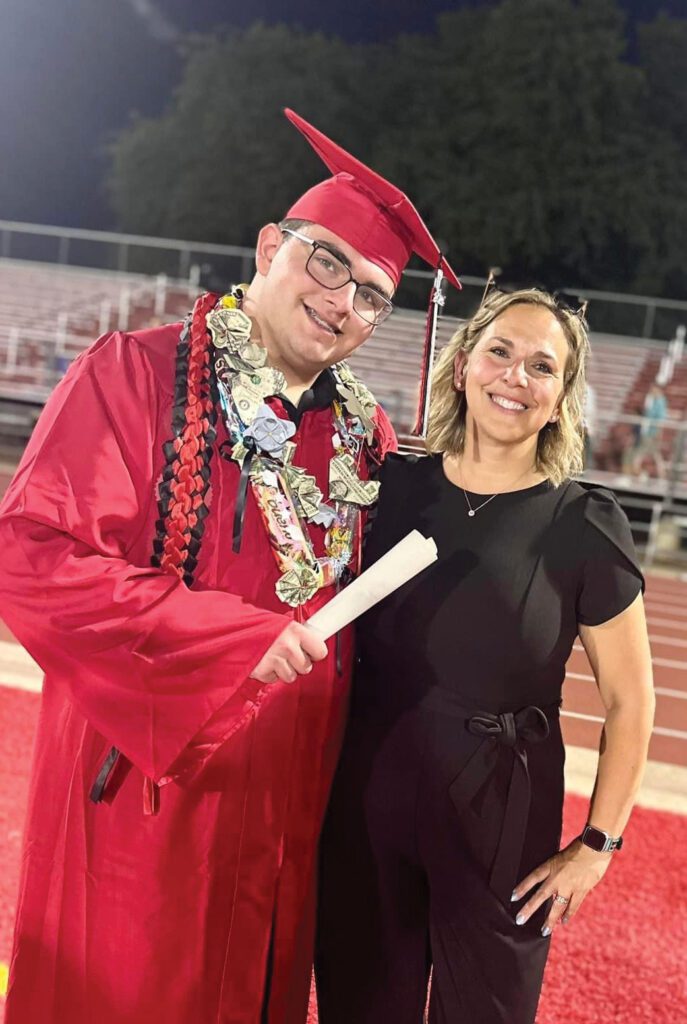
Thanks to his parents’ unwavering support throughout his life, Andrew Hawes graduated high school with straight A’s and is currently enrolled in the PACE program at Shasta College. Photo provided by Nikola Hawes
How advocacy shaped Andrew’s education
Andrew’s educational journey has played a big role in developing the skills that helped him succeed on the farm. As many parents of children with disabilities know, getting the right support in school can be challenging. Andrew’s parents were essential in fighting for his needs and making sure he received the right accommodations during his time at Redding School of the Arts and later at Foothill High. “You have to be your child’s advocate,” says his mom, Nikola, reflecting on their experience.
Through their advocacy, Andrew became one of the first students at RSA to receive specialized services tailored to his needs. Nikola recalls that the school was very receptive to providing the necessary support for Andrew, which in turn helped pave the way for future students requiring similar accommodations. To ensure the best possible support, RSA brought in autism specialists, which was a great help for the teachers. “It was a learning curve for everyone,” Nikola remembers.
With the right support in place, Andrew was able to thrive in mainstream classrooms and participate in vocational programs and extracurricular activities such as drama. He played the character of Mushu in the RSA’s production of Mulan, which he describes as his “biggest highlight” so far of his school career. He was also able to take welding classes, where he helped build the animal barn at Foothill High School.
PACE program ensures continued success in college
Andrew graduated from Foothill High School “with almost straight A’s,” says Nikola, and is now enrolled in the Partners in Access to College Education (PACE) program at Shasta College. PACE provides a variety of services to support students with disabilities, including academic accommodations, counseling, assistive technology and advocacy.
One of the tools Andrew and Nikola are excited about is the Livescribe Echo Smartpen. This digital pen records audio while the student takes notes on special paper, allowing them to capture both what’s being said and what they write. Tools like this can be a game-changer for students with learning differences and disabilities, making it easier to stay on top of coursework.
As for what’s next, Andrew plans to keep studying at Shasta College and continue working on the farm. He’s even thinking about starting a YouTube channel to share life on the farm from his perspective and maybe a bit of comedy since Nikola says that one of his “biggest goals in life” is to make people laugh. Whatever direction he takes, one thing is certain—his family will be there to support him every step of the way.
Posted in: Special Needs, Uniquely Us
Comment Policy: All viewpoints are welcome, but comments should remain relevant. Personal attacks, profanity, and aggressive behavior are not allowed. No spam, advertising, or promoting of products/services. Please, only use your real name and limit the amount of links submitted in your comment.
You Might Also Like...

Caregiver Burnout: Trying to Pour from an Empty Cup
I used to think it was normal to be exhausted all the time. I had four small children, two of whom had significant medical issues. I considered myself lucky if […]
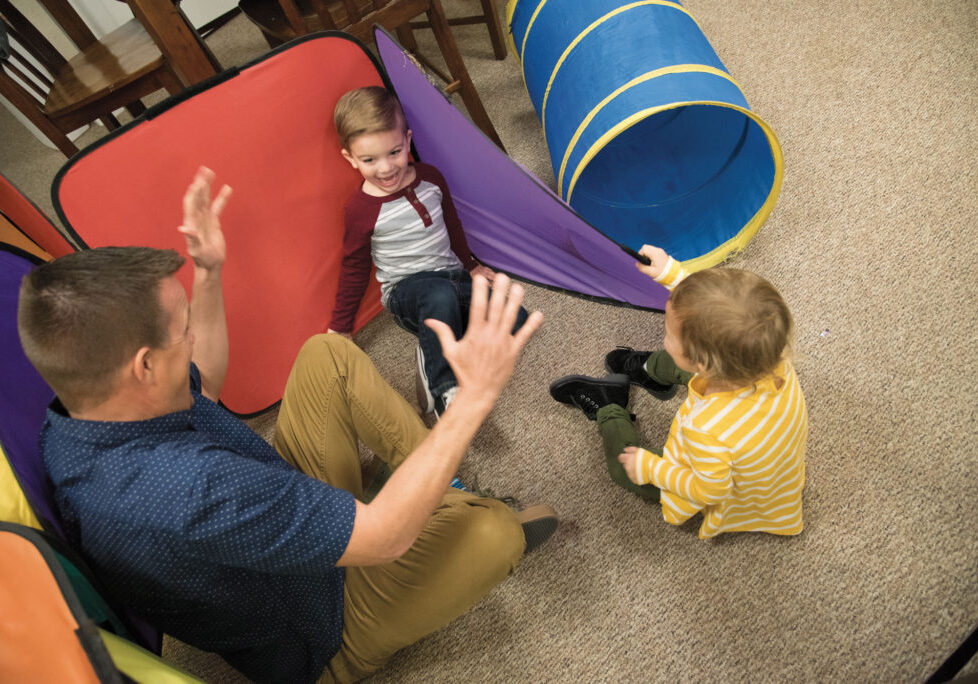
Parent Infant Programs: Early Intervention in the North State
Being a parent can be a wonderful and life changing experience. It can also be extremely stressful and demanding, especially if your child is experiencing development challenges. It is natural […]

Understanding Neurodiversity
Neurodiversity is a term that has gained significant traction in recent years, but its meaning and implications are often misunderstood. At its core, neurodiversity refers to the natural variation in […]
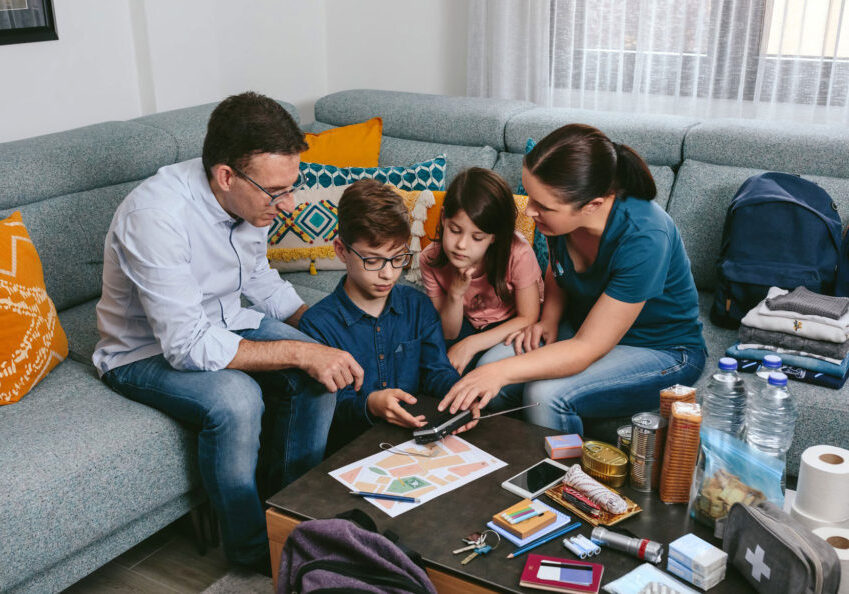
Preparing for an Emergency When You Have a Medically Fragile Child
With raging wildfires, power outages, and widespread cases of COVID-19, the North State has been in crisis mode for the last several months. As parents of a medically fragile child, […]




